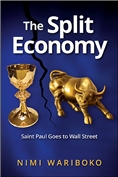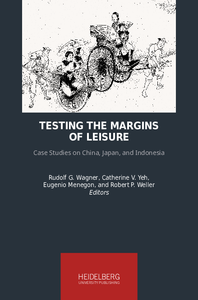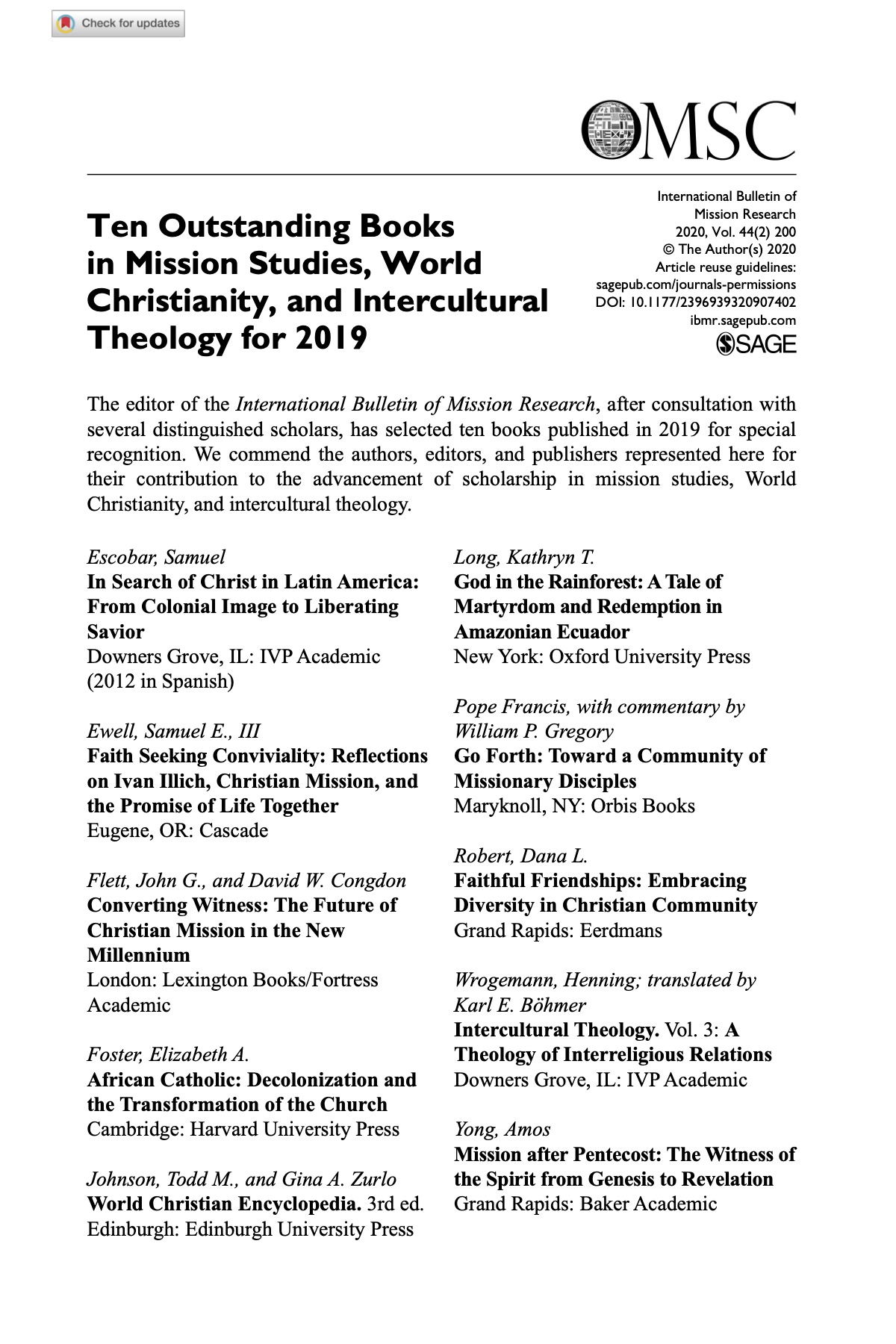Papers & Publications
John Parker Awarded Franciscan History Fellowship
 John Parker was recently awarded a dissertation fellowship by the Academy of American Franciscan History. Mr. Parker's dissertation is tentatively entitled, "Libertas est Bonum Ordinis Superioris Omnium Bonorum: Perfect Obedientia in Epifanio Moirans O.F.M. cap's Iusta Defensio." He also has a chapter in the forthcoming, The Dominicans as Participants, Witnesses, and Critics of the Colonization of Early Latin America (Routledge).
John Parker was recently awarded a dissertation fellowship by the Academy of American Franciscan History. Mr. Parker's dissertation is tentatively entitled, "Libertas est Bonum Ordinis Superioris Omnium Bonorum: Perfect Obedientia in Epifanio Moirans O.F.M. cap's Iusta Defensio." He also has a chapter in the forthcoming, The Dominicans as Participants, Witnesses, and Critics of the Colonization of Early Latin America (Routledge).
Expanded Bios
The History of Missiology Biographies Project is grateful to announce the addition of nearly 200 new mission biographies to our digital collection. This increase was made possible through collaboration with the Methodist Mission Bicentennial project. The new biographies feature women and men from the past two centuries whose lives and mission work emanate from and touch diverse cultures, communities and contexts in Global Methodism.
The History of Missiology Project welcomes these additions, as they showcase the worldwide reach of Methodism, and can stimulate more scholarship on Christian mission for the future.
10 Outstanding Books on Mission 2019
The International Bulletin of Mission Research recently published its ten outstanding books in Mission Studies from 2019. It was exciting to see a number of people connected to Boston University on the list: Gina Zurlo ('17), William Gregory, Dana Robert, and Amos Yong.
Call for Papers: COVID-19, Disease, and the World Church
In the midst of a pandemic that is shaking the globe we call for papers for a special issue of Studies in World Christianity that analyse immediate responses to COVID-19 and that give some historical perspective on pandemics or epidemics. We do this in order to resource further response to pandemic whose effects will be with us for some years to come.
The papers may interrogate worldwide Christian responses to the outbreak of COVID-19 around the world by examining how churches have responded theologically and practically as the disease continues to spread. How have Christians responded by offering hope, calling for lament, or proclaiming God’s judgment? What ethical questions about planetary health, palliative care etc. have emerged or been hightened? How has digital media been employed for online church practice or as a vehicle for evangelism and social engagement? How has social distancing shaped understandings of the church community, and in what ways has online church left behind certain sectors of society?
The papers may also provide insight into how the world church in the past understood wide spread disease. Plague and pestilence have regularly been given theological scrutiny in Christian history and have prompted discussions of evil. The 1918-19 Influenza Pandemic influenced Pentecostal growth across the globe, and was instrumental in creating Independent Churches in West Africa who turned to fervent prayer and criticised mission churches for a lack of confidence in God. Missionary photography of plague and leprosy have been used to invigorate support of Western churches and missionary societies. In more recent history, HIV/AIDS has been described by some as the result of sexual sin, whereas the Avian flu and SARS were seen by others as fulfilling end-times prophecy and Ebola has shaken customary palliative care and funeral rites.
It is not uncommon to find articles that address aspects of health and Christian healing. In this special issue we wish to examine worldwide Christian reactions to disease and its spread as a way of understanding and reflecting upon a common problem with different contextual outcomes that have distinct and shared responses across the globe.
Due to the timeliness of the subject, we invite indicative abstracts by 20 April 2020 and complete articles (5000–8000 words, footnotes inclusive) by 25 May 2020. Papers should be formatted based on our styl e guide https://www.euppublishing.com/pb-assets/SWC_May2017.pdf and emailed to swc-editor@ed.ac.uk.
New Book: A History of West Central Africa to 1850
 In his latest book, John Thorton has done substantial new research in primary sources and archives, to create an accessible interpretative history of West Central Africa from earliest times to 1852. He gives comprehensive and in-depth coverage of the region with equal focus given to both internal histories or inter-state interactions and external dynamics and relationships. This study represents an original approach to regional histories which goes beyond the existing scholarship on the area. By contextualising and expanding its range to include treatment of the Portuguese colony of Angola, John K. Thornton provides new understandings of significant events, people, and inter-regional interactions which aid the grounding of the history of West Central Africa within a broader context. A valuable resource to students and scholars of African history.
In his latest book, John Thorton has done substantial new research in primary sources and archives, to create an accessible interpretative history of West Central Africa from earliest times to 1852. He gives comprehensive and in-depth coverage of the region with equal focus given to both internal histories or inter-state interactions and external dynamics and relationships. This study represents an original approach to regional histories which goes beyond the existing scholarship on the area. By contextualising and expanding its range to include treatment of the Portuguese colony of Angola, John K. Thornton provides new understandings of significant events, people, and inter-regional interactions which aid the grounding of the history of West Central Africa within a broader context. A valuable resource to students and scholars of African history.
New Book: The Split Economy
 In his new book, The Split Economy, Nimi Wariboko looks closely at the ethical challenge of capitalism. Others have named injustice, inequality, repression, exploitative empires, and capitalism’s psychic hold over all of us, as the central problem. Nimi Wariboko instead argues that the core ethical problem of capitalism lies in the split nature of the modern economy, an economy divided against itself. Production is set against finance, consumption against saving, and the future against the present. As the rich enjoy their lifestyle, their fellow citizens live in servitude. The economy mimics the structure of our human subjectivity as Saint Paul theorizes in Romans 7: the law constitutes the subject as split, traversed by negativity. The economy is split, shot through with a fundamental antagonism. This fundamental negativity at the core of the economy disturbs its stability and identity, generating its destructive drive. The Split Economy develops a robust theoretical framework at the intersection of continental philosophy, psychoanalytic theory, theology, and political economy to reveal a fundamental dynamic at the heart of capitalism.
In his new book, The Split Economy, Nimi Wariboko looks closely at the ethical challenge of capitalism. Others have named injustice, inequality, repression, exploitative empires, and capitalism’s psychic hold over all of us, as the central problem. Nimi Wariboko instead argues that the core ethical problem of capitalism lies in the split nature of the modern economy, an economy divided against itself. Production is set against finance, consumption against saving, and the future against the present. As the rich enjoy their lifestyle, their fellow citizens live in servitude. The economy mimics the structure of our human subjectivity as Saint Paul theorizes in Romans 7: the law constitutes the subject as split, traversed by negativity. The economy is split, shot through with a fundamental antagonism. This fundamental negativity at the core of the economy disturbs its stability and identity, generating its destructive drive. The Split Economy develops a robust theoretical framework at the intersection of continental philosophy, psychoanalytic theory, theology, and political economy to reveal a fundamental dynamic at the heart of capitalism.
Award of Excellence
In a recent award-winning article in Pneuma, Antipas Harris ('08) advances hermeneutical insights for emerging black pentecostal scholars to consider. The salient question is, “What distinguishes black Pentecostalism?” This study revisits James H. Cone’s sources for black theology for insight into the role of blackness in shaping black Pentecostalism. On the one hand, the study dispels the myth that black Pentecostalism is inherently a spiritual alternative to the fight for social justice. On the other hand, it calls for critical dialogue between Cone’s sources for black theology and black Pentecostalism to advance scholarship on the formation of black pentecostal hermeneutics. This essay explains that blackness is more than a cultural and experiential reality. Blackness is a theological source that correlates with other sources in shaping black Pentecostalism. Blackness, moreover, legitimates black pentecostal proclivities for the integration of the faith, spirituality, and social advocacy. Theological blackness in Pentecostalism has historically distinguished black Pentecostalism from subsequent white Pentecostalism.
Telescope and Microscope
One of the challenges of global history is to bridge the particularities of individual lives and trajectories with the macro-historical patterns that develop over space and time. Italian micro-history, particularly popular in the 1980s–1990s, has excavated the lives of small communities or individuals to test the findings of serial history and macro-historical approaches. Micro-history in the Anglophone world has instead focused more on narrative itself, and has shown, with some exceptions, less interest for ampler historiographical conclusions.
Sino-Western interactions in the early modern period offer a particularly fruitful field of investigation, ripe for a synthesis of the global and the micro-historical. Cultural, social, and economic phenomena can be traced in economic and statistical series, unpublished correspondence, and other non-institutional sources, in part thanks to the survival of detailed records of the activities of East India companies and missionary agencies in China. Recent scholarship has started to offer new conclusions, based on such Western records and matching records in the Chinese historical archive.
In this article, Eugenio Menegon offers a methodological reflection on ‘global micro-history’, followed by four micro-historical ‘vignettes’ that focus on the economic and socio-religious activities of the Roman Catholic mission in Beijing in the long eighteenth century. These fragments uncover unexplored facets of Chinese life in global contexts from the point of view of European missionaries and Chinese Christians in the Qing capital—‘end users’ of the local and global networks of commerce and religion bridging Europe, Asia, Africa, and South and Central America.
“Telescope and Microscope. A Micro-Historical Approach to Global China in the Eighteenth Century - Forum Article," Modern Asia Studies 2019.
The Habit that Hides the Monk
Professor Eugenio Menegon has recently published an article on missionaries and clothing in China. “‘The Habit That Hides the Monk’: Missionary Fashion Strategies in Late Imperial Chinese Society and Court Culture.” In Catholic Missionaries in Early Modern Asia: Patterns of Localization, edited by Nadine Amsler, Andreea Badea, Bernard Heyberger, and Christian Windler. London: Routledge, 2019
Quid pro Quo? Missionaries and Their ‘Skill Capital’ in Qing Beijing
 In the eighteenth century around thirty European Catholic missionaries lived in Beijing, partly employed in technical and artistic services at the imperial palace and at the Directorate of Astronomy, and partly engaged in religious work. Starting in 1724, however, the Yongzheng Emperor forbade Christianity in the provinces. Yet the foreigners, with semi-official permission, continued missionizing in the capital and its environs, employed Chinese personnel, purchased residences and other real estate, and built churches in the Imperial City, the “Tartar City,” and the Haidian suburb. The emperor and the Qing court (Manchu nobles, eunuchs, and other officials) allowed these Europeans to remain in Beijing and tolerated their religious activities in exchange for their exotic commodities and their services. The missionaries, on the other hand, used their skills and a relentless gift-giving strategy to create a network of support in the capital and beyond.
In the eighteenth century around thirty European Catholic missionaries lived in Beijing, partly employed in technical and artistic services at the imperial palace and at the Directorate of Astronomy, and partly engaged in religious work. Starting in 1724, however, the Yongzheng Emperor forbade Christianity in the provinces. Yet the foreigners, with semi-official permission, continued missionizing in the capital and its environs, employed Chinese personnel, purchased residences and other real estate, and built churches in the Imperial City, the “Tartar City,” and the Haidian suburb. The emperor and the Qing court (Manchu nobles, eunuchs, and other officials) allowed these Europeans to remain in Beijing and tolerated their religious activities in exchange for their exotic commodities and their services. The missionaries, on the other hand, used their skills and a relentless gift-giving strategy to create a network of support in the capital and beyond.
In his recent publication, "Quid pro Quo? Europeans and Their ‘Skill Capital’ in Qing Beijing," Eugenio Menegon uses documents in Chinese and European archives, to explore the figure of the missionary and clockmaker Sigismondo Meinardi, and his ‘quid pro quo’ artisanal activities at the Qianlong court. Technical skills, luxury articles and commodities became currencies of negotiation between divergent interests, contributing to weaken Qing imperial prohibitions, and to create ad hoc arrangements, tolerated by the emperor and benefiting the palace personnel, the missionaries, and their communities. Thus, spaces and objects of ‘leisure’ became grounds to rebalance traditionally asymmetrical relations of power, and shape social relations.
The essay is part of a larger work: Testing the Margins of Leisure: Cases from China, Japan and Indonesia. Edited by Rudolf Wagner, Catherine Yeh, Eugenio Menegon, and Robert Weller. Heidelberg: Heidelberg University Publishing, 2019.

